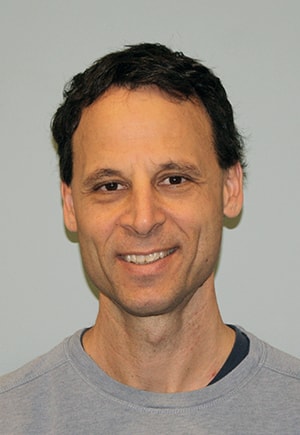Ira Z. Rothstein
Professor of Physics
Nuclear & Particle Physics
High Energy Physics Theory
Wean Hall 7406
412-268-2739

Education & Professional Experience
Ph.D.: University of Maryland (1992)
M.Sc.: Brown University (1987)
Professional Societies:
Fellow, American Physical Society
Professor of Physics, Carnegie Mellon University, 2003–
Associate Professor, Carnegie Mellon University, 2000–03
Assistant Professor, Carnegie Mellon University, 1997–2000
Post-doctoral Research: UC San Diego, 1995–97
Post-doctoral Research: University of Michigan, 1992–95
Research Interests
My work focuses on the application of ``Effective Field Theory” (EFT) to study complex, non-linear, strongly coupled systems. EFT is perhaps the most powerful tool we have to understand all aspects of science, as it is based upon the language of quantum field theory which is believed to correctly describe nature at all accessible distance scales. The EFT methodology can simplify complicated multi-scale problems by taking advantage of the deep and profound fact that nature allows us to separate physics at different distance scales. For instance, we can study a block sliding down a plane without knowing that the block is made of atoms. This ``decoupling” property is a consequence of a certain characteristic of all known physical laws known as ``locality”.
Recent Publications
I.Z. Rothstein, P. Shrivastava, Symmetry Obstruction to Fermi Liquid Behavior in the Unitary Limit, Phys. Rev. B 99, 3, 035101 (2019)
I.Z. Rothstein, P. Shrivastava, Symmetry Realization via a Dynamical Inverse Higgs Mechanism, J.High Energ. Phys. 05, 014 (2018)
A. Kapustin, T. McKinney, I.Z. Rothstein, Wilsonian effective field theory of 2D van Hove singularities, Phys. Rev. B 98, 3, 035122 (2018)
C. Cheung, I.Z. Rothstein, M.P. Solon, From Scattering Amplitudes to Classical Potentials in the Post-Minkowskian Expansion, Phys. Rev. Lett. 121, 251101 (2018)
I.Z. Rothstein, I. Stewart, An Effective Field Theory for Forward Scattering and Factorization Violation, J. High Energ. Phys. 08, 025 (2016)
D. Neill, I.Z. Rothstein, V. Vaidya, The Higgs Transverse Momentum Distribution at NNLL and its Theoretical Errors, J. High Energ. Phys. 12, 097 (2015)
M. Baumgart, I.Z. Rothstein, V. Vaidya, Calculating the Annihilation Rate of Weakly Interacting Massive Particles, Phys. Rev. Lett. 114, 211301 (2015)
M. Baumgart, A.K. Leibovich, T. Mehen, I.Z. Rothstein, Probing quarkonium production mechanisms with jet substructure, J. High Energ. Phys. 11, 3 (2014)
D. Neill, I.Z. Rothstein, Classical space–times from the S-matrix, Nuclear Phys. B 877, 177 (2013)
Ira Z. Rothstein, Gravitational Anderson Localization, Phys. Rev. Lett. 110, 011601 (2013)
W.D. Goldberger, I.Z. Rothstein, Structure-function sum rules for systems with large scattering lengths, Phys. Rev. A 85, 013613 (2012)
J.-Y. Chiu, A. Jain, D. Neill, I. Z. Rothstein, Rapidity Renormalization Group, Phys. Rev. Lett. 108, 151601 (2012)
More Publications:
ORCID Researcher ID